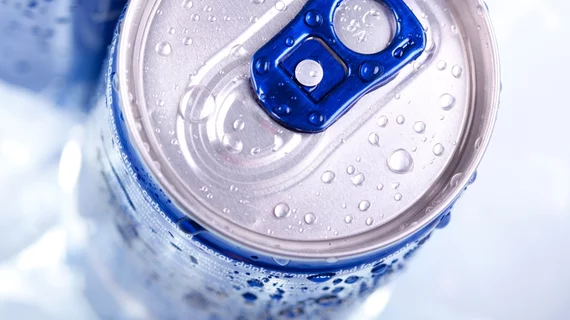Energy drinks and sudden cardiac arrest: There’s smoke, and there may be fire
Energy drinks may increase the risk of sudden cardiac arrest (SCA) in people with underlying heart disease, according to a new analysis published in Heart Rhythm.[1]
It is too early to know for sure, researchers wrote, but the evidence suggests it may be time for “an early warning” about the potential relationship between these highly caffeinated drinks and adverse cardiac events in patients with genetic heart disease.
“These beverages contain caffeine ranging from 80 to 300 mg per serving, compared with 100 mg in an 8-oz cup of brewed coffee,” wrote corresponding author Michael J. Ackerman, MD, PhD, a pediatric cardiologist with the Windland Smith Rice Sudden Death Genomics Laboratory at Mayo Clinic, and colleagues. “However, most of these energy drinks contain other stimulating ingredients in addition to caffeine that are unregulated by the U.S. Food and Drug Administration (FDA), such as taurine and guarana. The industry's growth has raised concerns about the potential combined effects of caffeine consumption and additional unregulated ingredients in these beverages.”
The group examined the electronic health records of 144 SCA survivors who were referred to a single heart rhythm clinic. Overall, 5% of survivors—six women and one man—had recently consumed an energy drink prior to the event.
All but one patient required rescue shock; the other was resuscitated manually.
Each survivor presented with underlying genetic heart disease. After a complete evaluation, three survivors were diagnosed with unexplained sudden cardiac arrest/idiopathic ventricular fibrillation, two were diagnosed with catecholaminergic polymorphic ventricular tachycardia and two were diagnosed with long QT syndrome.
Ackerman did note that the experience caused the survivors to stop consuming energy drinks altogether.
“Following their SCA, all patients ceased consuming energy drinks, were further risk-stratified, and had their disease-directed therapies optimized,” the authors wrote. “They have since remained free from breakthrough cardiac events, with an average follow-up of 52 months.”
Reviewing their findings, the authors concluded that there is enough evidence for this issue to be taken seriously.
“Although the event rate is low, energy drinks could be triggering SCA in individuals with genetic heart disease, and an early warning should be made about the potential risks of these drinks in these patients,” they wrote. “Patients should be educated on minimizing their consumption of energy drinks, and the FDA should be urged to provide guidelines about the proper and safe use of these drinks.”
Click here to read the full study in Heart Rhythm, a journal from the Heart Rhythm Society.

